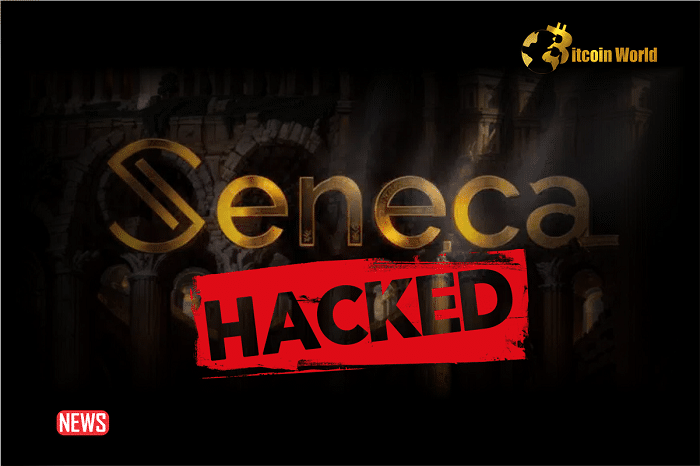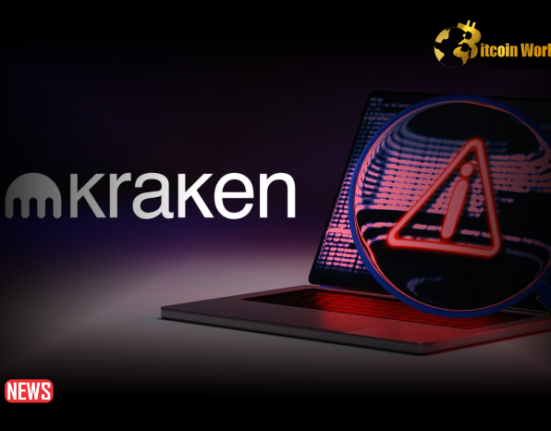The Seneca lending protocol was hacked through its ‘performOperations’ function, and about $6.4M of collateral was drained from it.
Decentralized finance (DeFi) lending platform and stablecoin issuer Seneca Protocol has been exploited, according to a Feb. 28 statement on the protcol’s official X account.
We are actively working with security specialists to investigate the approval bug found today.
In the meantime, REVOKE approvals for the following addresses:#Ethereum
PT-ezETH 0x529eBB6D157dFE5AE2AA7199a6f9E0e9830E6Dc1
apxETH 0xD837321Fc7fabA9af2f37EFFA08d4973A9BaCe34…— Seneca (@SenecaUSD) February 28, 2024
In a report seen by Cointelegraph, blockchain analytics firm CertiK estimated the losses at $6.4 million so far.
The Seneca team urged users to revoke approvals for the affected contracts. Its staff are “currently working with security specialists to investigate the bug,” they stated.
Seneca Protocol is a DeFi lending app that allows users to deposit a variety of cryptocurrencies as collateral, which then can be used to mint and borrow the protocol’s native stablecoin, SenecaUSD.
See Also: Serenity Shield Token (SERSH) Collapsed By 95% After $5.6m Breach
Blockchain data shows that an account ending in 42DC was able to transfer approximately 1,385.23 Pendleton Kelp restaked Ether (PT Kelp rsETH) from a Seneca collateral pool, which it did by calling the “performOperations” function.
The account subsequently swapped these tokens for approximately $4 million worth of Ether (ETH) over the course of three transactions.
After these swaps, the account transferred an additional 717.04 ETH derivative tokens from various collateral pools and swapped them for ETH.
In its report, CertiK claimed that these transfers were malicious. They were made possible because the protocol contains a flaw in its “performOperations” function, the report stated.
The bug allows any account to call the function while specifying OPERATION_CALL as the action to be performed.
This allows the attacker to “perform external calls to any address as the callee and callData are fully controlled by the attacker.”
As a result, the attacker was able to drain funds from the collateral pool that it didn’t own, CertiK claims.
Blockchain investigator Spreek also warned users about the exploit on X, stating that it represented a “critical vulnerability.”
Looks like Seneca Protocol has a critical approval exploit (open external call). $3m+ lost so far across eth/arb pic.twitter.com/MkbNShtPUm
— Spreek (Denver 28th-5th) (@spreekaway) February 28, 2024
Spreek suggested that users should revoke approvals of the addresses used in the exploit.
ADDRESSES TO REVOKE: 0xbc83f2711d0749d7454e4a9d53d8594df0377c05 (MAINNET)
0x2d99e1116e73110b88c468189aa6af8bb4675ec9 (ARBITRUM)
— Spreek (Denver 28th-5th) (@spreekaway) February 28, 2024
According to security researcher ddimitrov22, Seneca is suffering from an additional vulnerability that prevents developers from pausing the Seneca contracts, as the pause and unpause functions in them contain the keyword “internal,” which means “there is no way to call them.”
The Seneca protocol is hacked and it cannot be paused even though it inherits the Pausable library.
This is because the `_pause` and `_unpause` functions are internal and there is no way to call them. pic.twitter.com/en0qIsayMX
— ddimitrov22 (@ddimitrovv22) February 28, 2024
In its post acknowledging the attack, the development team stated that they are conducting an investigation and will post an update “shortly.”
Hacks and exploits continue to threaten Web3 users in 2024. On Feb, 23, Axie Infinity co-founder Jeff “Jihoz” Zirlin lost $9.7 million from a hack of his personal wallets.
On the same day, DeFi protocol Blueberry was exploited for 457 ETH.
Disclaimer: The information provided is not trading advice. Bitcoinworld.co.in holds no liability for any investments made based on the information provided on this page. We strongly recommend independent research and/or consultation with a qualified professional before making any investment decisions.
#Binance #WRITE2EARN














